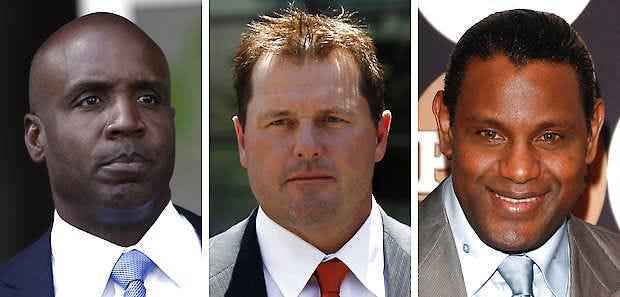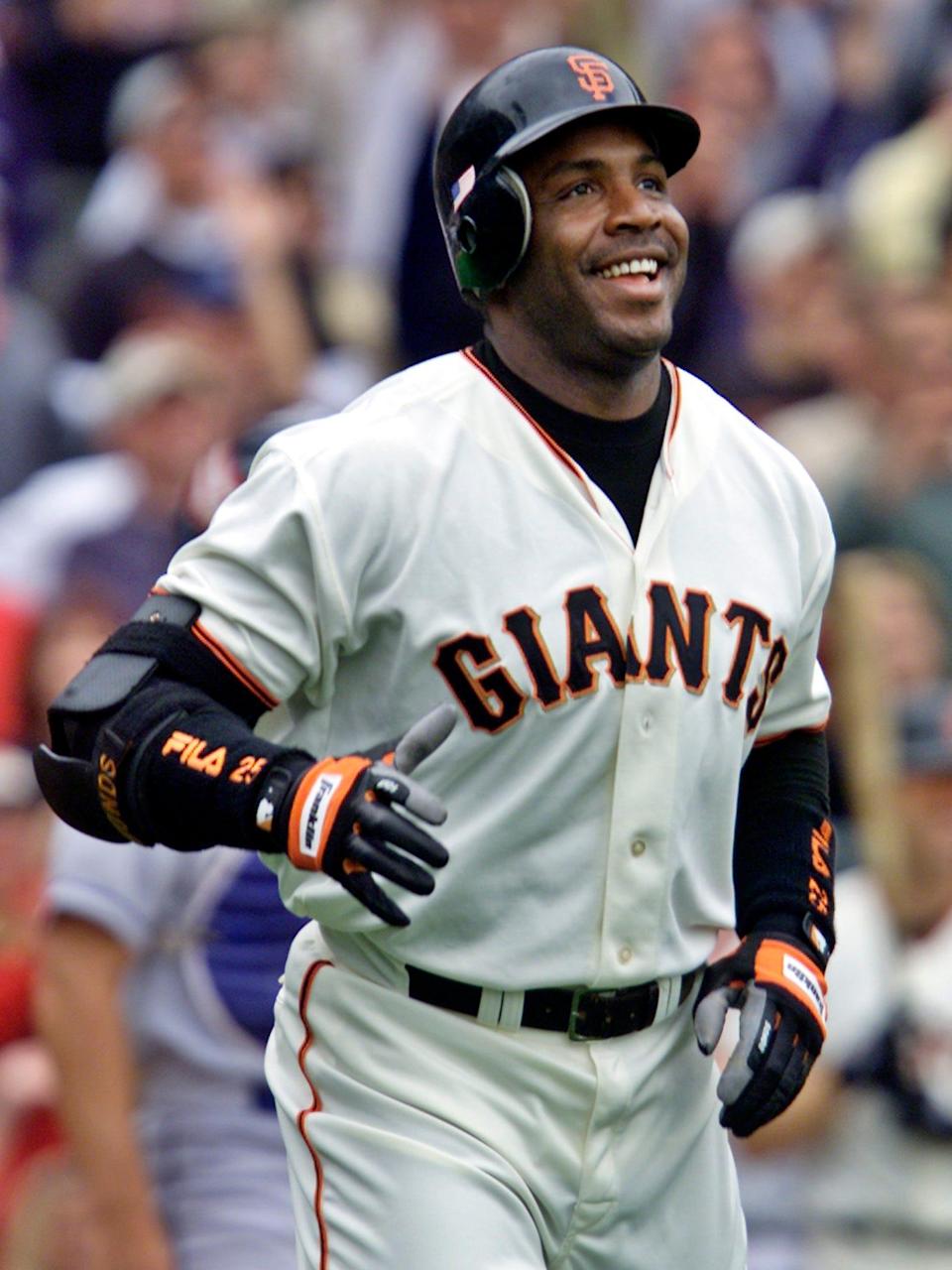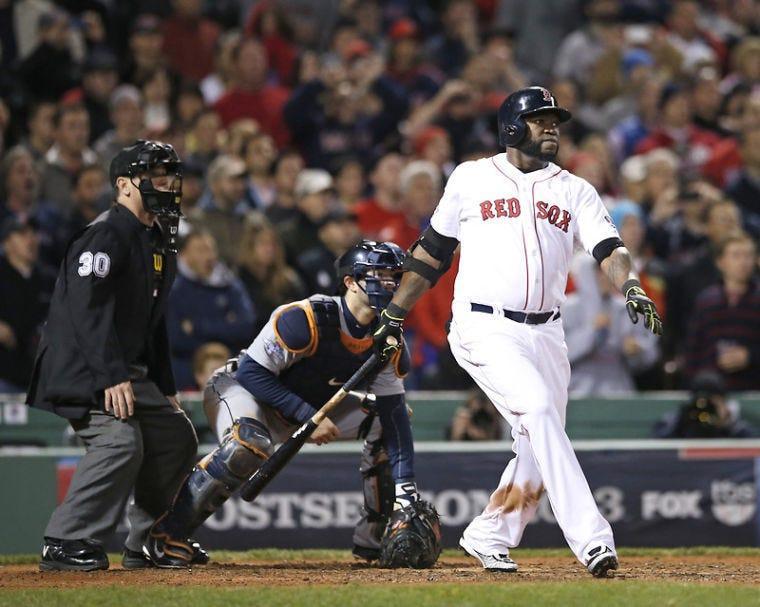
A decade ago, voters for baseball’s Hall of Fame got their first opportunity to make a decision about the sport’s infamous Steroids Era.
When the ballots arrived in late 2012, they included for the first time Barry Bonds, Roger Clemens and Sammy Sosa.
Previous ballots had listed other players who were, one way or the other, implicated in possible, even likely, use of performance-enhancing drugs. In some cases, those links were shaky, based on innuendo, whispers, even circumstantial “evidence,” for lack of a better word.
This time, though, the appearance of the Tainted Trio changed everything.
Lines were drawn. Some were vehemently opposed to the idea of those three players being enshrined alongside the other greats of the game. Others saw these players as being products of their era — there were so many people caught up in PEDs it was impossible to tell who was using and who was clean — and that it was unfair to single out anyone. And of course there was plenty of gray area between those poles.
This is the 10th and final year on the ballot for the three Steroids Era lightning rods. For about half of this time, it appeared none would stand a chance of election. In recent years, however, the mood of the voters has changed, and Bonds and Clemens have pushed north of 60% of the vote. A player needs better than 75% of ballots cast for election, so up to now they have remained pretty far off the pace (and Sosa only received 17% last year).
However, with the voting deadline having passed on Dec. 31, early data from people who track ballots that have been made public show both Bonds and Clemens are trending ahead of the 75% threshold with about a third of the ballots accounted for. (You can track this by following @NotMrTibbs on Twitter.)


Ten years ago, when it came time to cast my votes, I was angry. I was upset that this ultimate judgment on the Steroids Era had fallen to the Baseball Writers Association of America when no one else — not MLB, not the Hall of Fame, not the courts and not even Congress — could decide what to do about these players and this slice of baseball history.
So I decided to hit the pause button. I needed more time to sort through the issues. I hoped, probably unrealistically, there might be some clarity forthcoming in the years ahead. (There was none.)
I made the difficult choice to send back a blank ballot. I knew no permanent harm would come from this expression of my discontent. It was clear no first-year player on that ballot was going to be elected, and it was also clear there were no holdover candidates who would need my one vote that year to make over the threshold. I felt comfortable taking a beat to spend more time thinking.
I also knew two other things. One, I would not send a blank ballot ever again. This would be a one-year protest of sorts. Two, I knew that if I wrote about my decision, I would be opening myself up for public ridicule.
Boy, did that come true. A writer for NBC’s website called me a “self-righteous, grandstanding attention whore.” Another website said what I was doing was “committing the greatest sin of a sportswriter (by) making the story about him.” Still another writer came to the astounding conclusion that “I’m pretty sure the sport of baseball isn’t going to be fundamentally changed because Mark Faller turned in one blank Hall of Fame ballot.”
Guess they told me.
In the years that have passed, the BBWAA has elected a handful players who have been suspected of PED use. The slope clearly is slippery. What is your criteria for making these choices? Was a player included in the George Mitchell report on PEDs? Did he ever fail a drug test or get suspended? Or were there just suspicions, gossip, dot-connecting?
This year’s election is a great case study of where voters will take the discussion in the future. Alex Rodriguez and David Ortiz are on the ballot for the first time. Both have clear-cut statistical cases for enshrinement. Both have some history with PEDs — but those histories are vastly different.
A-Rod was suspended for an entire season a decade after MLB instituted its drug policy, and was suspended two other times. That make him a hard “no” for me.
Ortiz, though, is said to have failed a drug test once, in 2003, but it’s never been said what drug he was alleged to have used. That test was part of a sweeping, and supposedly anonymous, sweep of players to see how wide-spread PED use was in the game. He never tested positive again, and Commissioner Rob Manfred has questioned both the validity of that process and said its unfair to taint Ortiz based solely on one suspect result. That’s enough for me to check the box next to Big Papi’s name.
This PED litmus test can be all-consuming if you let it. One way to sort through all this was voiced by USA Today baseball columnist Bob Nightengale, who very logically spells out his Hall of Fame voting approach with what he called his “definitive line of demarcation.”


“If you were punished or suspended when Major League Baseball implemented its drug policy after the 2004 season, you’re automatically out. You not only embarrassed yourself, but you hurt your team with your absence,” he wrote.
“If you were never punished or suspended, you are judged on your own merits like everyone else.”
With that, Bob is voting for Bonds and Clemens.
I am not.
They weren’t punished, they weren’t suspended, and they were never “proven” guilty of anything. OK. But they also posted statistics late in their careers that no other baseball players have ever approached at those ages, and they did it for years, and now we’re supposed to look the other way — the way baseball did, the way the media did, the way their own friends and families did?
I can forgive a lapse in judgment. I can have sympathy for someone who got caught and at least gave lip service to making things right. And I can live with not being sure about an individual player when there is no preponderance of even circumstantial evidence.
I cannot vote for two people who, by all appearances, shamelessly made a mockery of the game for their own benefit. Yes, their teams won championships. Yes, their teams’ fans were thrilled. That’s going to have to be enough reward.
The rest of my ballot along with Ortiz: Andruw Jones, Todd Helton, Scott Rolen, Gary Sheffield.
You might notice the absence of a certain former Diamondbacks pitcher, also in his 10th and final year of BBWAA eligibility. Curt Schilling last year asked the Hall of Fame to take him off the ballot. They declined, but that’s good enough for me. Good luck with the Veterans Committee.
Mark Faller is sports editor of the Arizona Republic and azcentral.com. Reach him at mark.faller@arizonarepublic.com, and follow him on Twitter @falleraz.
Support local journalism. Subscribe to azcentral.com today.
This article originally appeared on Arizona Republic: Last call for Barry Bonds, Roger Clemens on Hall of Fame ballot
